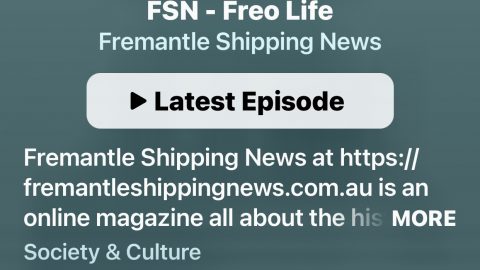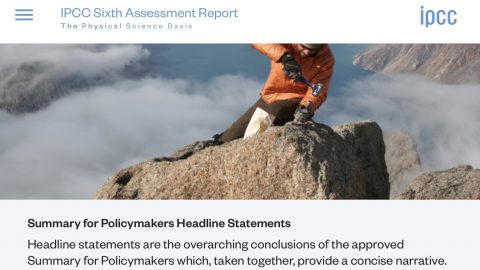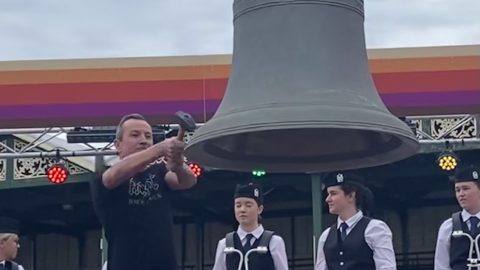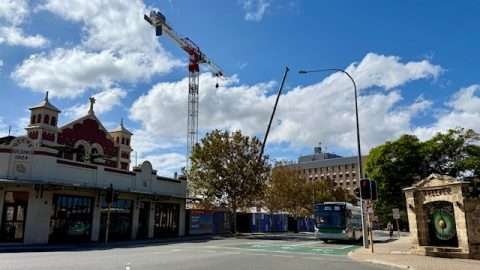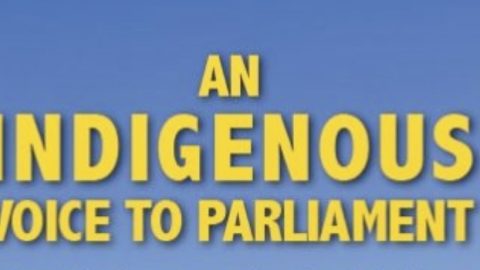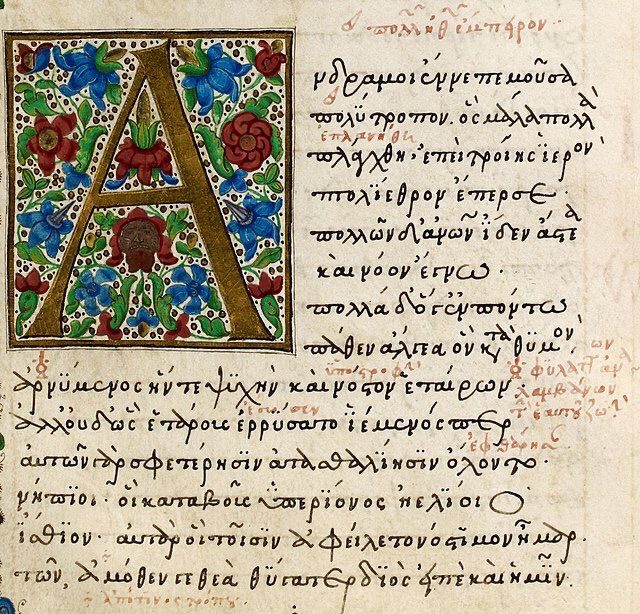My interest in convicts and transportation to Western Australia began with the discovery that my great, great, grandfather, John Henderson, was one of the “class.” Even when you had served your time and gained your certificate of freedom you were still considered to be of the “bond class.” John was sentenced to fourteen years’ transportation. Coming from a family where the most serious brushes with the law were related to parking or the occasional speeding fine this came as no small surprise. It could not be said, either, that he merely stole a loaf of bread to feed his family. He was sentenced for the burglary of a pawn broking business in Leith, Scotland and it was his third offence. Although he experienced discrimination in his country of exile he achieved a degree of respectability as was possible in a community fractured between “Free” and “Bond” classes. His three surviving children all married “free” and respected members of the community and bequeathed to the country a large, law abiding families who have no doubt contributed to their country’s stable and fortunate way of life.
In a delightful twist of irony John Henderson may have been the only convicted felon to make it into Burke’s Peerage* – that chronicle of British snobbery and pretension. His Fremantle born daughter, Janet, had married Arthur Elphinstone Malet from a family of nobility [2]. The marriage at St Andrew’s Cathedral in Singapore was a world away from the ignominious British prison system. No less than nine times and in four different newspapers did John proudly place his record of the marriage that took place on 26th September 1891. There is no indication, however, that he made it to the occasion. It was his boldest statement to the colony since his signing of a petition against discrimination toward expirees in 1877. The Malet family boasted a lineage back to the Battle of Hastings. Norman blood was something coveted by the aristocracy of Britain. Burkes traced the glorious past:
This family, which settled in England at the period of the Norman Conquest, has ever since, in its various branches, enjoyed opulence, rank and influence. The founder of the family, WILLIAM LORD MALLET DE GREVILLE, one of the great barons who accompanied the Conqueror, was charged to protect the remains of the fallen monarch Harold, and see them decently interred after the Battle of Hastings. [3]
Arthur’s grandfather had been created a baronet in 1791 for his services in negotiating a triple alliance between the East India Company, the Nizam of Hyderabad, and the Maratha Peshwa against Tipu Sultan, the Rajah of Mysore.
Arthur was born in 1858 at Bombay in the wake of the Indian Mutiny. He was the son of Arthur Rivers Malet, a magistrate in the Indian Civil Service who retired to Pyrland Hall, Taunton, St James, Somerset with his family about 1860. There he farmed 132 acres and employed 13 people. Arthur’s middle name probably derived from Lord Elphinstone who served as Governor of Mumbai.
With a pedigree like that Arthur could have dazzled the members of the Weld Club in Perth. He married a convict’s daughter. Arthur was cast of the adventurous, pioneering mold. Coming to the West from Victoria in the early 1880’s he ventured into pearling, storekeeping, gold mining and owned the Club Hotel at Derby in partnership with the Palmer brothers. After the discovery of gold at Hall’s Creek Arthur surveyed a track through wild terrain along the Fitzroy River to the fields from Derby. Perhaps he was inspired by the romance of the Imperial adventurers and explorers of his boyhood – Speke, Burton and Stanley. The Kimberley goldfields did not live up to its hopes and dreams, however, and Arthur never made his fortune. Sadly he died of the bubonic plague aged 42 in 1900 at South Fremantle. He and Janet had no children.
John’s eldest, Laurence, became a popular identity of Fremantle and married Priscilla Pearse. Priscilla’s father William Silas Pearse, had come to the colony as a servant on board the Egyptian in 1830 and risen to prominence with a large butchering business and served as a member of the Fremantle Town Trust before his death in 1866. Her mother, Susannah Hallet Glyde, had arrived with her family board the ill-fated Rockingham with Thomas Peel in the same year. Her brothers William Silas and George were prominent citizens combining butchering, shipping and pastoral interests. Both served on the Fremantle Town Council, a number of influential boards and committees and William was Fremantle representative on the Legislative Council and after self government served for many years in the Legislative Assembly. No doubt this marriage helped Laurence’s career as a storekeeper. He was a mason, a cricketer for Fremantle and Quarter Master Sergeant in the Fremantle Rifle Volunteers. His talents led him to leadership of the Fremantle Band and the choir of the Fremantle Congregational Church, and church organist.
John’s eldest daughter, Marion, married my great grandfather George Forsyth. At the time of their marriage in 1866 George was a constable in the Fremantle Water Police. He went on to become port pilot at Fremantle and then Harbour Master. Perhaps this marriage did not assist him in his career as some of the Pecksniffs that dominated the colony from the sanctity of the Weld Club considered him a lesser person for it.
John Henderson was born in Leith, the port for Edinburgh in Scotland in 1818. He was a seaman who appears to have wished to better his family’s lot by illegal means. His third charge, for “the crime of Theft aggravated by Housebreaking, opening lockfast places and previous conviction” saw him sentenced to 14 years transportation at Edinburgh on 30.6.1851. The court listed the proceeds of his not insubstantial night’s work after breaking into the Leith pawnbroker:
Eleven or thereby, Silver Watches, Three, or thereby, Metal Chains, A ring, Two, or thereby, Seals, A Worsted Guard-Chain, A Silver Watch, Forty-Eight, or thereby, Gold or other Metal Rings, A Marriage Hoop, Sixty-two, or thereby, Gold or other Metal Rings or Hoops, Two, or thereby, Gold or other Metal Rings, A Gold Breast-Pin, A small Piece of Gold Chain, Two , or Thereby, Gold or other Metal Rings, A Gold or other Metal Hoop, Two or thereby, Ear-Drops, An Eye-Glass, Three, or thereby, Brooches, A Metal Snuff-Box, Three, or thereby, Seals, A Watch-Key, Two, or thereby, Breast-Pins, Three, or thereby, Brooches, A Silver Pencil-Case, One dozen, or thereby, of Silver Spoons and Six Shillings sterling, or thereby, in Copper Money.
The successful disposal of this ambitious haul would have given him wealth beyond the dreams of a seaman. Instead John learnt that crime doesn’t pay. Time spent at Leeds prison followed by a month on the prison hulk Defence on the Thames at Woolwich brought this lesson home to him. Imprisoned on the Defence at that time was a convict called Joseph Bolitho Johns. Johns would soon be transported to Fremantle also and frustrate officialdom and amuse the colonists with his numerous escapades and escapes from custody. He became known as “Moondyne Joe.” Delivered to Fremantle by the Dudbrook in early 1853 John quickly gained his ticket-of-leave and worked as a sailmaker at the Commissariat.

Prison Hulks on the River Thames, Woolwich, c.1856.
Back in Leith John’s wife Anne had lost a child and struggled to keep the family together for six long years. In 1857, however, John arranged the family’s voyage to Fremantle on the City of Bristol. By then he had gained his conditional pardon and was eligible to do so by paying half their fare. Their fourth child, Janet Mabel, was born at Fremantle in 1859. Sadly Anne passed away the next year from injuries from childbirth.
John established a shop-residence on the corner of Packenham and Collie Streets in Fremantle. His “experience” with pawnbroking led him to establish himself in that business in Fremantle. This was another of the small ironies of his life. The lack of specie in the colony led John to have penny tokens minted in Melbourne. His were the last to be produced in Australia. Interestingly, the motto in Latin, “Tandem movetur” that he used on some of his tokens equated to Governor Weld’s famous statement about the embattled colony of the day: “At last she moves.”

Around the same time he also owned a “first class boarding house” in Mouatt St called “Auld Reekie” – the nickname for Edinburgh. Close to the waterfront, it was here that young men from the sea could find comfortable lodgings. It was here that George Forsyth and Arthur Malet met their future wives.
John was an active member of the Fremantle Working Man’s Association. This organization was established in July 1862 under the patronage of Governor Hampton. The papers advertised:
“THE object which the Association has in view, is to raise the moral and intellectual tone of the Working Classes, by combining instruction with amusement.”
In its early years John provided free to the organization a reading room on his premises. He was a signatory as a committee member to a letter to the papers responding to one from the Reverends Bostock and Johnson who were announcing their intended resignations from the leadership. John and his co-signatories took umbrage to the suggestion that there should always be “an equal division in committee of the two classes (i.e. free and bond) of which the association is, in one sense, composed” This appears to have been influenced from above as there was an implicit warning that a government grant would be lost if control of the association “lapsed into a particular clique.” The association’s committee were most sensitive to any move to alienate further the bond class. that had served its sentence, from the free. Unfortunately there were some within the bond class such as foundation member and signatory, the notorious forger, Leopold Redpath whom it was considered fostered antipathy in the community. Redpath had his ticket-of-leave revoked in September of 1864 for insolence to Rev. Bostock.
John remarried in 1863 to Emma Barton, just days after gaining his Certificate of Freedom. Emma had arrived just eight months earlier on the emigrant ship Burlington from Derbyshire and was twenty years his junior. Six days prior to the wedding, his younger brother, William, had arrived in the colony on the Tartar and was able to witness their marriage certificate. William led a quiet bachelor’s life and worked at the Customs Department.
The Henderson family life centred on the Fremantle Congregational Church. This egalitarian and influential organization was led by the popular and much respected Rev. Joseph Johnson. Johnson had come to the colony in the early years of transportation and did much to guide the colony through those difficult times and the succeeding years.
In August of 1888 John Henderson, in his capacity as debt collector for the Fremantle Council, proceeded to the residence of photographer Nathaniel Armstrong with a warrant to sieze goods to the value of an outstanding debt of £1 4s incurred for rent. Taking a horse and cart to the back of the premises he was met by Armstrong. When told of his mission and showing the warrant, Armstrong is reported by the papers to have said:
“Do you think that I will allow an old ——- like you to touch anything belonging to me. Clear out from here, or I will punch your ——- head.” The defendant then seized witness by the shoulders, and threw him violently into the sand.
One can imagine the second deleted word as some feisty expletive but the first one is perhaps more interesting. It could well be that the paper censored the word “convict” or “lag.” Freed convicts were usually shown the respect of not referring to their origins in the colony. Doubtless the older readers filled in the blanks. No doubt John, now aged seventy years was shaken by the assault. The courts handed down a fine of 40s. and costs.
This was in fact the second occasion on which John had confronted Armstrong in his capacity as assistant bailiff and been assaulted. Two months earlier The Daily News reported an assault but indicated that John had not wished to press charges. The magistrate had cautioned the defendant and warned that he should have been liable to a fine of £20.As far back as 23rd Sept in 1871 the Herald reporting on Fremantle Police Court matters:
William Coffin, free, appeared in answer to a summons charging him with having on the 15th inst., used abusive and threatening language towards, and in the hearing of John Henderson, to the hindrance of the prosecutor in the execution of the powers vested in him by the Fremantle Municipality; fined 5s. or 7 days’ imprisonment in default.
As Roads Board Collector, John had the authority to summons unlicensed cart owners to court.
On Thursday, December 15th, 1892 the West Australian announced the death of John Henderson:
DEATHS
HENDERSON – At Fremantle on the 13th December,
1892. JOHN HENDERSON, aged 74 years, late of
the Commissariat Department, West Australia.
Was the reference to the Commissariat where he was employed as a ticket-of-leave man almost forty years in the past a coded reference to his origins in the colony?
The Daily News more reasonably recorded:
Mr John Henderson, who for many years held the position of Collector to the Fremantle Municipality, died last night.
No veiled messages either from the Adelaide Advertiser which reported his passing under the heading: “DEATH OF AN OLD WEST AUSTRALIAN”, informing that an old resident of Fremantle had died.
The brief outline of his life that is revealed indicates a man who came to the colony on the lowest rung of the social ladder and apparently made a respectable life for his family. One can imagine him as being enterprising, adaptable and resilient as one who had endured the prison system with his health and sanity intact would have to have been. For John Henderson, like many transported to its shores, Australia seems to have offered the opportunity to establish a better life for himself and his family. Undoubtedly there were hardships but he was able to break from a life of crime and achieve security and even respectability. It is unlikely he would have done this had he remained in Scotland. His three children who survived to adulthood all made successful lives and marriages. However, if John found redemption in his new land, he was one of the more fortunate. So many from the “class” struggled at the extremities of society. And yet this may well have been their lot had they remained in Britain.
Recent genealogical research has indicated that John may be descended through Shetland Islands ancestry from Euphemia Elphinstone who was mistress to James IV of Scotland. Euphemia married a Bruce so perhaps John Henderson carried the DNA of Robert the Bruce?!? Maybe, probably not. What is paramount to John Henderson’s story, however, is not the past but the fact that he was able to put it behind him. He was able to make the most of his opportunities and build a better life for him and his family.
It is open to speculation which generation consigned John’s convict origins to secrecy. My father’s generation was unaware of it. It is conceivable that his grandchildren were also sheltered from the fact.
This conspiracy of silence was often extended within families. Grandchildren could grow up ignorant of their convict origins. Surprisingly, their neighbours, though well aware of the facts, did not enlighten them. Thus the odd situation arose of most people in the district sharing a secret kept from the direct descendants of the convict concerned.
* Burke’s Peerage, listing of the peerage (titled aristocracy) of Great Britain and Ireland, first published as Burke’s General and Heraldic Dictionary of the Peerage and Baronetage of the United Kingdom for MDCCCXXVI by John Burke in London in 1826. This series of family histories, republished nearly every year from 1839 to 1940, rapidly became an institution. The founder’s son and subsequent editor, Sir Bernard Burke, Ulster King of Arms, was primarily responsible for this status, but he flourished during a period in which genealogy became almost inseparable from snobbery. Worse, he bequeathed a substantial amount of flawed data to his successors. He had few editorial scruples, and many fanciful medieval anecdotes were presented as fact. After his death subsequent editors attempted to rebuild the reputation Burke’s institutional status deserved, but this task was still incomplete when the last volume to be published by the original publishing house, Burke’s Peerage Ltd., appeared in 1970 with many serious errors hidden among its nearly 3,300 pages of tightly printed data. Encyclopaedia Brittanica.
REFERENCES
[1] Inquirer 5 April 1854 (Letter to editor from “A Free Man.”)
[2] Burke’s Peerage 1972 (His name was abbreviated to Henders.)
[3] Ibid.
[4] 1871 England Census.
[5] Victorian Express 27 Oct 1887.
[6] Scottish Record Office, Justiciary Minute book Ref. JC 4\58.
[7] Fremantle Times 25 April 1919 & 16 May 1919.
[8] Perth Gazette 30 May 1862 p2.
[9] Perth Gazette 24 July 1863 p3.
[10] Inquirer 19 Aug 1862, p2.
[11] The West Australian 16 Aug 1888.
[12] The Daily News 14 June 1888.
[13] The Herald 23 Sept 1871.
[14] The Daily News 13 Dec 1892.
[15] The Advertiser 14 Dec 1892.
[16] https://www.bayanne.info/Shetland
[17] Dictionary of Wet Australians, Bond, R Erikson.
